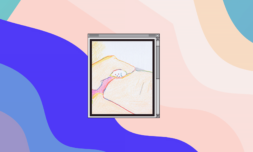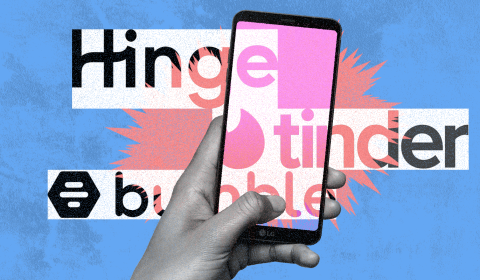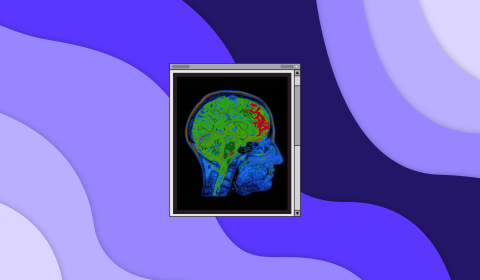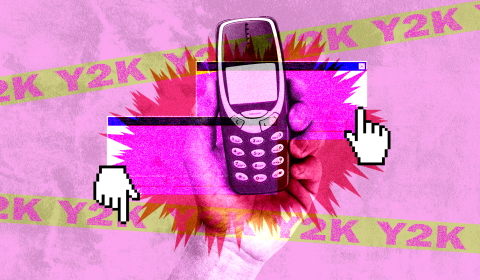though I’d vehemently deny it if you ever brought it up, I cannot remember ever caring about my physical appearance in a way that could be considered ‘healthy.’
![]()
I’ve always wondered what it would be like to look in the mirror and feel optimistic about what’s in front of me.
Saying that, I strive to avoid my reflection at all costs these days, to ward off the chastising that otherwise runs rampant. It’s taken me almost twenty eight years to know myself this well, to understand exactly what needs to be done to prevent this malicious form of self-criticism from ruling my life.
Even still, I wouldn’t consider my relationship with my body a healthy one.
It’s been this way for as long as I can remember. During childhood, it manifested itself as a cavernous sense of shame. Fortunate to have been raised by parents with a profound appreciation for food, I’ve never been a picky eater and growing up was an amalgamation of beautiful meals cooked for me daily, as well as frequent opportunities to try new cuisines.
Despite this inherent privilege, however, I was regularly (light-heartedly, of course) referred to as being ‘greedy,’ because no matter how nourished I was, there was always room for more.
If I wasn’t reaching for the last helping at the dinner table, I was secretly buying snacks from the off license round the corner with my pocket money. If I wasn’t asking for a second slice of cake at a birthday party, I was hiding empty sweet packets and chocolate wrappers in my chest of drawers.
This, as you can imagine, thrust me into a bottomless pit of guilt, and deep in this harmful cycle before I was old enough to be exposed to toxic beauty standards, things really kicked off in my late teens.
Thanks to my metabolism as a young person, I hadn’t had to worry about gaining weight throughout secondary school, so besides a constant, gnawing anxiety at the sneakiness of my habits, those years were largely carefree.
Unfortunately, with the advent of social media coinciding with the change in how quickly I could burn calories, university was a different story.
Until then, I’d been able to feed my cravings with no visible consequences.
Yet as soon as unattainable appearance-based ideals began presenting themselves to me through a screen – and my desire to achieve them emerged – the number on the scale began to climb.
Familiar, by this point, with satiating my appetite for ‘junk’ whenever it arose (most often as an emotional response), the snacking didn’t stop, it got worse.
This was confusing, given how fixated as I was on being skinny, but I had no idea then that this fixation was only compounding my stress which was, in turn, driving me to drown that stress out with sugary treats.
A great deal more confusing, was that I couldn’t actually see how much weight I was gaining (hello, body dysmorphia!), but I could feel it, and thus the pattern of binging and restricting reared its ugly head.
For the entirety of my degree and for a decent while after graduating, I was severely trapped in its clutches.
From short bursts of exercising voraciously to a temporary bout of veganism that started with good intentions but fast became an obsessive means of monitoring what passed through my lips, to consuming whatever I wanted, whenever I wanted and rarely getting out of bed, my mental health spiralled overwhelmingly.
But I just kept going, unaware that this was hurting me and completely in denial that this kind of behaviour is what constitutes an eating disorder.
Having witnessed first-hand through loved ones the sincerely heart-breaking effects of this illness, I never thought to describe my own experience as such.
Partly because I feared it would be doing them a disservice to place mine in the same category, but also because it took being told I should seek help by my GP – one of the few people I’ve been truly honest to about this – to accept that it was a problem.
This small step towards progress was made in early 2020, right when the pandemic hit.
In isolation, with so much time to spare, I decided I should seize the chance to do what the doctor had ordered and throw myself into confronting what I’d been ignoring.
Following a quick google search along the lines of ‘how to regulate binging and restricting,’ I stumbled across an article touting the benefits of intermittent fasting.
By the end of the week, I had trained myself to eat between the hours of one and nine pm alone, foregoing everything but water and black coffee for the remaining sixteen in a day.
Additionally, to overcome boredom and exert the pent-up energy I was accumulating from being stuck indoors, I started exercising a lot. When lockdowns eased, I was running five km and doing a YouTube HIIT workout and ab workout daily.
Finally, not seeing but feeling that I was shedding the pounds and keeping them off, I was in control – ‘it’s healthy,’ I’d tell myself.
I was back to square one.
Unsurprisingly, the moment reality returned to normal and commuting, working in-office, and socialising was once again part of my routine, I struggled to maintain this lifestyle.
So I compromised. I swapped running with walking, YouTube workouts for yoga, and carried on fasting.
Today, though deleting Strava and refusing to sweat through another minute of Chloe Ting has worked wonders for my mental health, as has leisurely exploring the natural world on foot and flowing to build strength, balance, and inner-peace, the fact that I continue to compulsively check my step count, beat myself up if I don’t do a vinyasa, and willingly neglect hunger cues implies that I’m nowhere near healed.
Somehow, the fixation always finds a way to take charge, especially if my mood is low or my anxiety high. From what I gather, it’s how I’ve become accustomed to coping with unmanageable emotions – of which I have many.
But my God am I sick and tired of losing things I genuinely enjoy to this fundamentally destructive force.
I desperately want to walk without a 10K target, to practice yoga exclusively because it’s restorative, to view food as purely nourishing, to have breakfast!
There’s work ahead of me, sure, but I have faith I’ll get there eventually as long as I talk openly about it like I am now and pay no attention to the voice in my mind that’s urging me to finish this with a disclaimer that my experience has nothing on that of people – including my loved ones – who suffer more intensely.
There’s no denying this. It’s just important to recognise that everyone’s experience is valid and, as I’ve learned on my quest to heal my relationship with my body, unhealthy habits have a tendency to show up in ways we least expect, when we least expect. Calling them what they are is how we strip them of their power.
![]()
Thanks for reading and make sure to subscribe for the latest news on Gen Z and youth culture. Also, don’t forget to check out The Gen Zer for a weekly roundup of more trending insights, stories, and discussions.














 With the world hyper-focused on football transfer news, the Coldplay concert cheating scandal, and other genuinely grim world developments, I thought it might be nice to use this edition to focus on exciting news in technology, science, health, and wellness. In other words, the stories that’ll likely get buried in your timeline.
To provide...
With the world hyper-focused on football transfer news, the Coldplay concert cheating scandal, and other genuinely grim world developments, I thought it might be nice to use this edition to focus on exciting news in technology, science, health, and wellness. In other words, the stories that’ll likely get buried in your timeline.
To provide...


